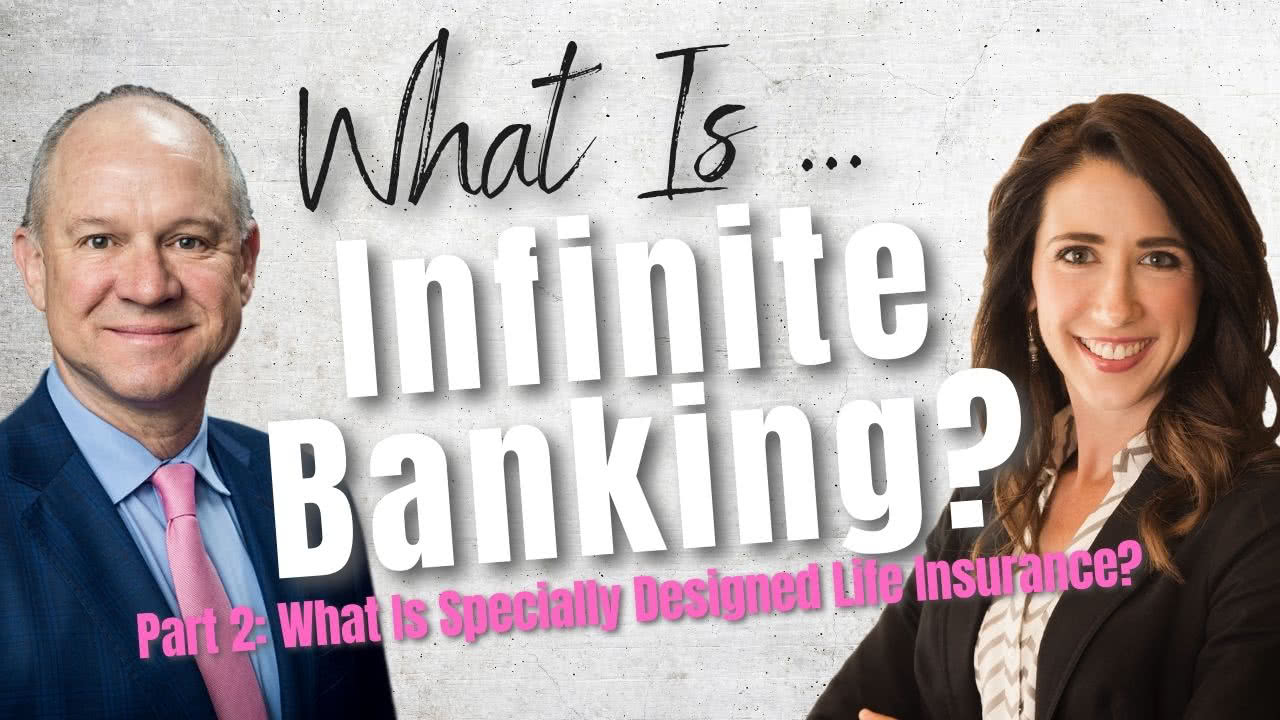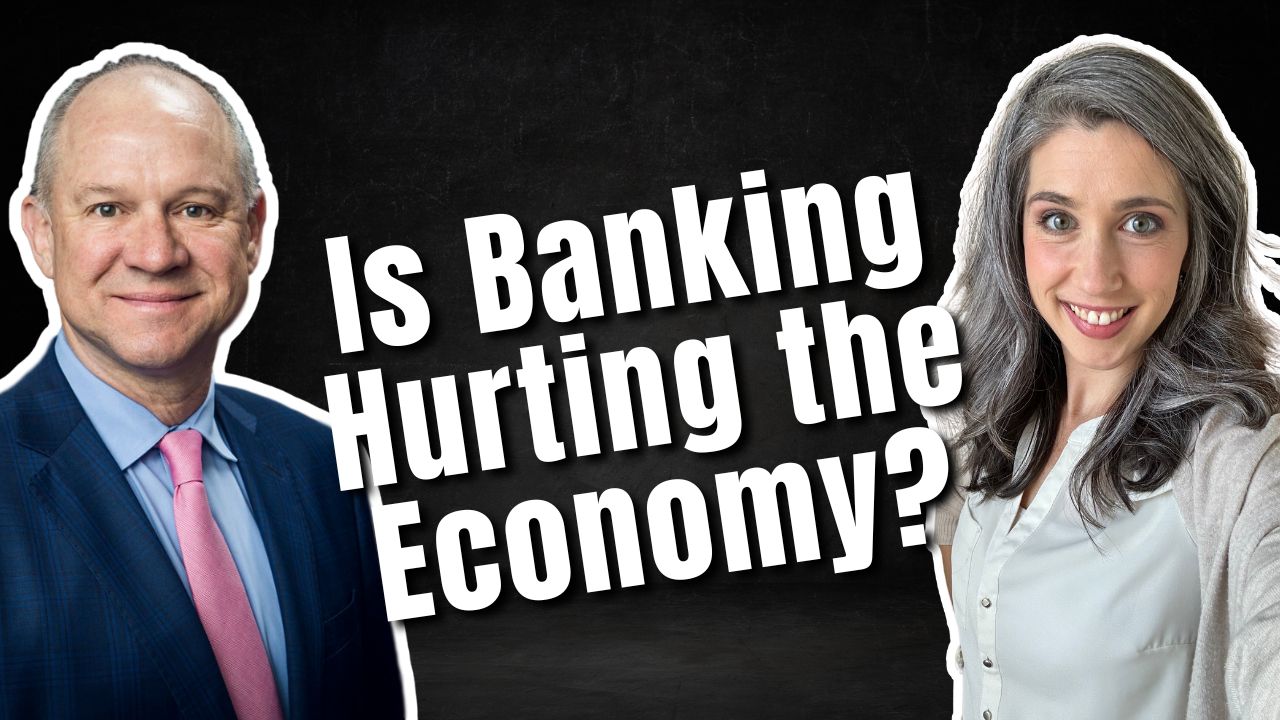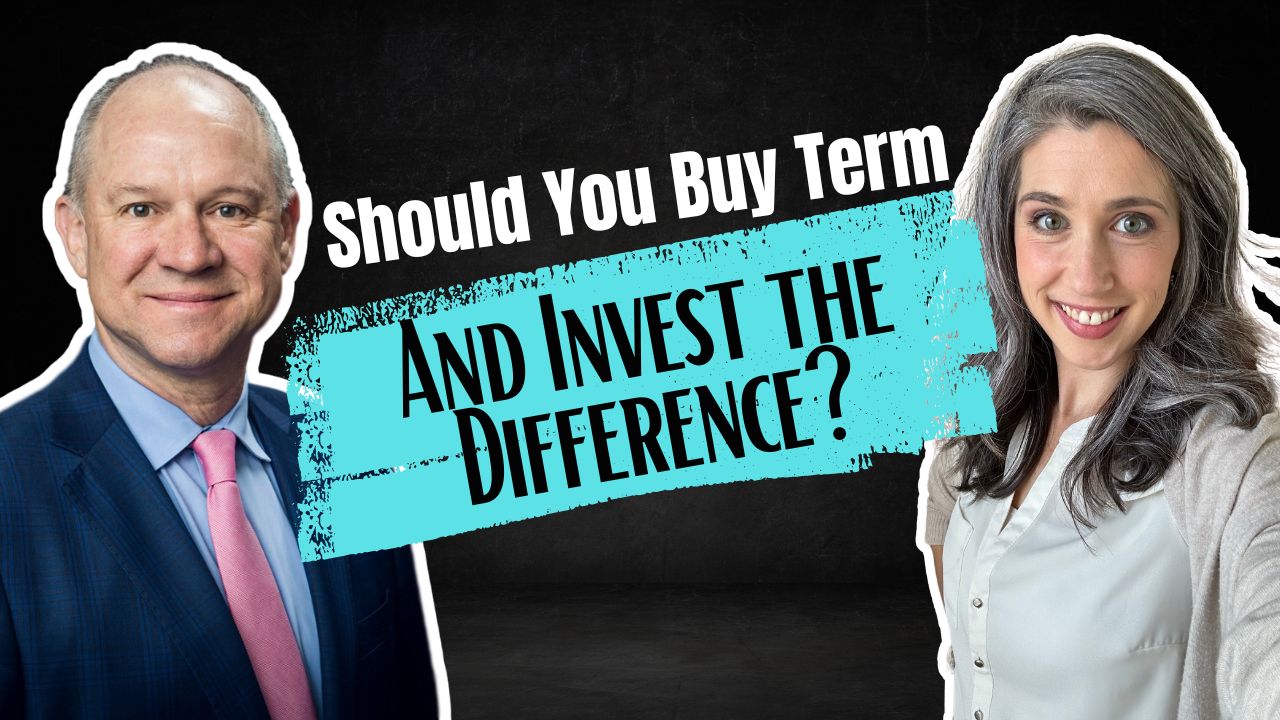
What is the Infinite Banking Concept? Part 2
Have you heard about the Infinite Banking Concept, and you want to learn more? Or maybe you’re already using Infinite Banking, but would like to explain it better to your spouse, your parents, your children, business partner, or friends.
In part 1 of our series on Infinite Banking, we’re unpacking the basics of policy design and what that means. You can view the first part of the series here: What is the Infinite Banking Concept? Part 1.
Here’s your cue to see what the fuss is all about… tune in now!
Podcast: Play in new window | Download (Duration: 55:26 — 63.4MB)
Subscribe: Apple Podcasts | Spotify | Android | Pandora | RSS | More
Table of contents
What is Specially Designed Whole Life Insurance
What is Specially Designed Whole Life Insurance?
The “special design” is dividend-paying, high cash value whole life insurance with a mutual company. This is the simplest definition, and we’ll break down the pieces and parts over the next few questions. This answer gives you something to come back to and ground yourself.
What Makes it Different from Ordinary Whole Life Insurance?
Essentially, ordinary whole life insurance is a basic policy that has a simple, non-optimized cash value component, and death benefit. With this type of policy, you only pay the base premium. A Whole life insurance product is a permanent, guaranteed insurance policy that lasts your whole life. However, if you are interested in using an Infinite Banking strategy, you’ll want to ask for a more customized policy. For example, you can either buy a policy with a stock company or a mutual company, which can affect your cash value growth. Similarly, you can also customize what you pay in premiums vs. paid-up additions, which affects your cash value growth. An “ordinary” whole life insurance policy may not grow cash efficiently, yet for Infinite Banking having a specially designed policy is important.
What is Base Premium?
The base premium is the minimum premium that you must pay in order to keep your policy in good standing. This premium is calculated by the underwriters who use actuarial science to determine your premium based on age, health, and death benefit amount.
Your base premium contributes to your cash value over time, just like mortgage payments contribute to your home equity. If you want to speed up your early cash value growth, you can add PUAs to your premium payments.
What Are Paid-Up Additions?
Paid-Up Additions, or PUAs, are additional portions of insurance that you can buy fully paid up each year. This means that on top of the premiums you pay toward your base policy, you can buy a certain amount of additional coverage each year. This gives you additional death benefit, and it also gives you additional cash value.
When understanding PUAs, it’s important to grasp how cash value works. Your cash value is the equity of your death benefit, just like you build equity on your home. That means that as you pay your premium, you build equity on your insurance policy. Cash value is the accessible portion of your death benefit.
Additionally, your early premiums have a slow build-up. This is because the costs of your policy are front-loaded. So, at the beginning of your policy, your cash value won’t increase at a rate equal to what you pay. Though, over time, more of your premium will contribute directly to the cash value.
PUAs are like micro policies that you can tack onto your premiums each year, up to a limit. Your PUAs are a fully paid-up portion of insurance. This means that when you pay it, you’re directly increasing your death benefit and cash value. By adding PUAs to your base premium, you can speed up your cash value build-up in the early years, making your policy more efficient in the beginning.
What is a Mutual Company?
A mutual company is a company that acts in the interests of the policyholders, rather than stockholders. There are two main types of companies: stock companies and mutual companies. Stock companies are owned by stockholders, and mutual companies are owned by policyholders. This affects who the company pays profits to. Because mutual companies are beholden to the best interests of their policyholders, they invest very conservatively in bonds and other assets. They pay any profits to policyholders as dividends. Stock companies, on the other hand, are making investment decisions in the interest of stockholders. This can lead to riskier investments since they’re not acting in the interest of their customers, but their stockholders.
What is a Dividend?
A dividend is a mutual company’s distribution of profit to policyholders. The confusion comes from the technical classification, which is a “refund of premium.” However, what happens is mutual companies invest their capital into bonds, real estate, and other investments. They even receive a profit on interest paid on policy loans. When the companies make a profit, they distribute that amongst policyholders. And companies have a sound track record of paying dividends over the last hundred years or so.
What is the Difference Between the Policy Owner and the Insured?
The owner of a life insurance policy is the person who funds the policy (pays the premiums) and has the contractual right to access the cash value. The insured is the person whose life is underwritten, and the death benefit pays out depending on when the insured passes away. While the owner and the insured do not have to be the same person, they often are. However, there usually has to be “insurable interest” to fund a policy on someone else. This means that the owner has a reasonable connection to the insured, such as being a family member, business partner, or employer.
There’s another important party, which is the beneficiary. This is the person who receives the death benefit when the insured passes.
Roles Are Flexible
It’s also worth noting that the owner of the policy can change, and so can the beneficiary. For example, a parent may choose to transfer the ownership of a policy to their insured child after they turn 18. This would make the child the owner and insured, and the child may then choose to change the beneficiary. Another common scenario is during a divorce, people will often remove their ex from the beneficiary list, or at least move them from the primary spot.
The only role that cannot be altered in a life insurance contract is the insured. That is because when the policy goes through the underwriting process, all the numbers are calculated based on the insured. The premium, PUA limits, and other factors are set in stone. To insure a new person, you have to buy a new policy.
Should You Buy a Specially Designed Policy or an Ordinary Policy?
The bottom line is that this depends on you, your personal economy, and your financial goals. For example, a high-cash value policy may be an ideal first policy for you if you intend to use it as your emergency and opportunity fund. A specially designed policy can help you use your cash value as soon as possible.
However, you may want or need just a simple policy for a death benefit, to protect your family and lock in your insurability. In this case, an ordinary policy can serve you well. One is not better than the other, they simply serve different functions.
Book A Strategy Call
Do you want to coordinate your finances so that everything works together to improve your life today, accelerate time and money freedom, and leave the greatest legacy? We can help! Book an Introductory Call with our team today at https://themoneyadvantage.com/calendar/ and find out how Privatized Banking, alternative investments, or cash flow strategies can help you accomplish your goals better and faster. That being said, if you want to find out more about how Privatized Banking gives you the most safety, liquidity, and growth… plus boosts your investment returns, and guarantees a legacy, go to https://privatizedbankingsecrets.com/freeguide to learn more.
Fractional Reserve Banking Creates Inflation: Infinite Banking is the Solution
Inflation causes everything to feel more expensive, so what do you do to protect your money from inflation? Today, we’ll explore the link between inflation and fractional reserve banking, and how Infinite Banking is the sound money solution. A thought-provoking journey through inflation, fractional reserve banking, and the revolutionary concept of infinite banking. This episode…
Read MoreBuy Term and Invest the Difference: Here’s What’s Wrong
Are you trying to decide which type of life insurance to buy? You want to protect your family in case something happens, so how do you do it best? Whole life insurance is often rejected as expensive and a poor “investment,” while mainstream opinion leans in favor of the “buy term and invest the difference”…
Read More


